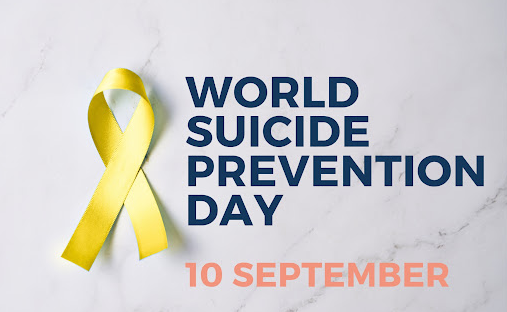As we observe World Suicide Prevention Day 2024, it is crucial to pause and reflect on the profound importance of mental health, particularly in a world that often prioritizes productivity over emotional well-being.
Suicide: A Global Public Health Concern
Suicide is one of the most urgent public health challenges of our time. According to the World Health Organization (WHO), more than 700,000 people die by suicide each year globally. For every suicide, there are many more individuals who attempt it. Behind these statistics are stories of people who struggled silently, who may have felt isolated, misunderstood, or overwhelmed by life’s challenges.
In India, suicide rates remain alarmingly high, particularly among young people. In 2022, the suicide rate increased by 4.2% from 2021, from 12 to 12.4 per 100,000 population (1,64,033 to 1,70,924) – the highest recorded rate over 56 years. The pressures of academic performance, employment instability, societal expectations, and the stigma surrounding mental health all contribute to this grim reality.
Yet, despite the staggering statistics, discussions around suicide often remain shrouded in stigma and silence. We tend to avoid conversations about mental health, either out of discomfort, fear, or lack of understanding. But the first step to preventing suicide is breaking this silence.
The Power of Conversation and Connection
As a mental health expert, I cannot stress enough the importance of open, empathetic conversations. Talking about suicide does not increase the risk of it happening; rather, it creates an opportunity for intervention and support. We must create safe spaces where individuals feel comfortable expressing their emotional pain, without fear of judgment.
Too often, those contemplating suicide feel like they are a burden or that no one will understand what they are going through. By fostering environments of compassion and listening, we can help shift this narrative. Whether you are a friend, family member, colleague, or stranger, sometimes a simple “How are you really feeling?” can open the door to life-saving conversations.
The recent surge in mental health awareness is encouraging, but we still have a long way to go in making mental health support accessible to everyone. Not all signs of suicidal ideation are visible, but understanding some of the common warning signs can help. Withdrawal from loved ones, changes in behavior or mood, expressions of hopelessness, or talk of being a burden are all signals that someone may be struggling. While it can feel daunting to ask someone if they are thinking of suicide, this direct question can break through the barrier of silence and help the person feel seen.
Here are some actions we can all take to contribute to suicide prevention:
- Educate Yourself and Others: Mental health literacy is key to suicide prevention. Learn about the warning signs of suicide, and educate those around you. The more we understand mental health, the better equipped we are to help.
- Promote Mental Health Services: Encourage those struggling with mental health to seek professional support. In India, private helplines and government initiatives like KIRAN offer crucial support to individuals in distress. Promoting these resources can connect people to the help they need.
- Support Mental Health at Work and School: Workplaces and educational institutions play a pivotal role in mental health support. Employers and schools should implement policies that promote emotional well-being, such as access to counseling services, mental health leave, and stress-management workshops.
- Be There: Reach out to someone you suspect may be struggling. Sometimes, simply being present and offering a listening ear can make a difference.
- Advocate for Systemic Change: On a larger scale, we need to push for policy changes that make mental health care more accessible and affordable. This includes advocating for better mental health coverage in insurance, expanding mental health services in rural areas, and reducing the stigma associated with seeking help.
A Shared Responsibility
Preventing suicide is not the responsibility of mental health professionals alone—it is a shared responsibility. Everyone can play a role in creating a more supportive, understanding world. While professional support is essential, personal connection can often serve as the first line of defense.
As we mark World Suicide Prevention Day 2024, let us remember that each of us has the power to make a difference. By opening up conversations, offering support, and taking collective action, we can create a society where hope is not just an abstract concept but a living, breathing reality.
Let’s keep talking. Let’s keep acting. And let’s keep building hope.
(The Author is Academic Director, IIMM Delhi. www.poojapriyamvada.com. https://linktr.ee/soulversified. https://amzn.to/3acQbMM)








